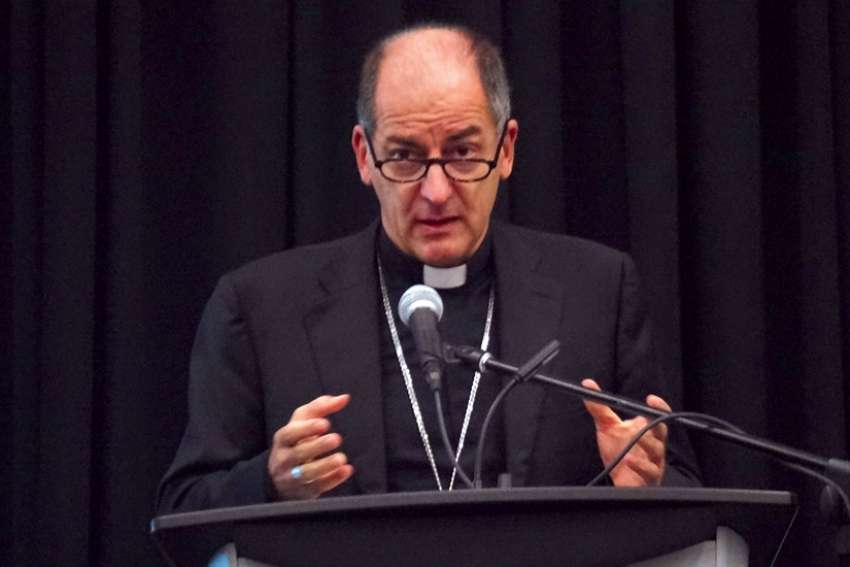“If we are convinced that Jesus is the revelation of God; if that’s true that God has manifested Himself in Jesus — that’s the heart of our faith,” Archbishop Giampietro Dal Toso told the annual gathering of the Canadian Conference of Catholic Bishops (CCCB) meeting in Cornwall, Ont., Sept. 23-27.
“Mission means the proclamation of the Gospel and the establishment of new churches,” he said in his keynote address on the theme of the upcoming Extraordinary Mission Month in October: “Baptized and Sent: The Church of Christ on a Mission in the World.”
“Mission was wrongly interpreted as aid for development,” he added.
“Some institutions were born as support for the mission and turned into aid for development,” said the Italian archbishop who has headed the societies for two years. “I am not opposed to those things, but I like to shed light on the missionary nature of the Church.”
The criteria for mission work is “freedom, the freedom of proclaiming and receiving,” he said in his address on the opening day of the bishops’ meeting. “On our part, I’m not going to talk about the people to whom we are sent. On my part, if I am not convinced that Jesus is the one sent by the Father, and when we see Jesus we see the face of God — if we don’t believe then I don’t know what to do.”
Dal Toso said the role of the Pontifical Mission Societies is to challenge the perspective that its purpose is only to send money to new churches. Its role is not just “giving the money outside but to raise the faith even here.”
“You can be aware of your missionary mandate only if you have faith,” he said.
The archbishop acknowledged the missionary model has changed. In the early days of missionaries, it was Western countries sending missionaries to Asia or Africa. Now, it’s often those areas of the world that are sending missionaries to places like Canada.
“If we’re not engaged in missionary work, we are missing who we are as Christians,” said Cardinal Thomas Collins of Toronto. “How do we do this in changing times?”
He noted that when the Pontifical Mission Societies first came into being in the 19th and 20th century, the churches in North America and Europe were sending missionaries to places where there is no faith.
Collins pointed out how his own diocese, in a highly secularized Canada, celebrates Mass in 37 different languages on Sundays. “One of our great strengths is we have people who come from places that used to be mission places — priests and laity — we need priests who speak the languages.
“Things have flipped,” he said, noting the countries that used to send missionaries have churches that are dead or dying. “It’s hard to know what’s what.
“The places that are receivers of missionaries are often very vibrant,” he said. “The Church is alive.
“Is Germany a mission territory?” the cardinal asked. “Is Canada?
“We may still think we are senders when really we should be humble receivers,” he said, noting that would require deep conversion. “The missionary senders of old are sclerotic and in need of great help.”
Dal Toso pointed out the missio ad gentes — to leave everything in order to announce the Gospel — is “a vocation coming from the Lord; it is not just a strategy of our dioceses.”
“Of course, we have to learn and welcome these new communities coming from the southern hemisphere and we have to serve them,” he said, noting they bring new vitality to our churches.
“The fact that they come and they are enriching us, which is evident, should not bring us to renounce our responsibility to be missionary,” he said.
Bishop Noel Simard of Valleyfield asked how an explicit proclamation of the Gospel can be reconciled with the approach of recognizing the Gospel seeds among non-baptized persons and people of good will.
“We can’t identify Christianity with the culture,” Dal Toso said. “Christianity is not western culture. It goes beyond all cultures because it inspired culture.”


